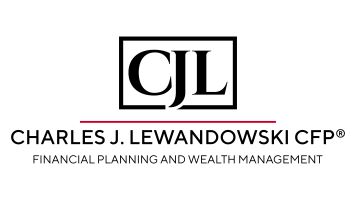Three Reasons Why a SOLO 401k Makes Sense for Sole Proprietors in 2020!
By Charles J. Lewandowski CFP®, MBA
Happy New Year business owners! As you close the books on 2019, you may be patting yourself on the back for taking your accountant’s advice by fully funding your SEP IRA. However, you would have liked to contribute more so you could reduce your tax burden or have a retirement account which provides more flexibility with retirement dollars. For the right person, a SOLO 401k account allows you to increase contributions and expand your retirement account’s utility.
What is a SOLO 401k?
A SOLO 401k, sometimes known as a Uni-k, Solo-k, or One Participant k, is a retirement account designed specifically for Sole Proprietors and their spouses. If the business owner has any employees beyond his or her spouse, they are not eligible for the SOLO 401k.
The plan is structured similarly to a traditional, large company 401k with identical contribution limits. However, plan documents are simplified, fees may be much less, and the plan is not subject to many ERISA rules.
Here are three reasons to open a SOLO 401k instead of a SEP IRA.
1.You may be able to contribute more to a Solo 401k than a SEP IRA –
In 2019, both the Sep IRA and 401k participants can contribute up to $57,000 in salary deferrals and profit sharing. However, 401k participants who are age 50 and older are eligible to contribute an additional $6,500 as a “catch-up” contribution resulting a total of $63,500 in contributions for the year. Depending on your tax bracket, that additional contribution can save hundreds if not thousands of dollars in federal taxes.
2. You can add a loan provision –
Although many advise taking a loan against your retirement accounts, sometimes a business owner’s need for liquidity requires additional flexibility from their personal assets. When you set up a SOLO 401k, you can add a provision that allows the participant to withdraw assets as a loan. (There are some restrictions about the amount and payback terms.) Loans are not available from a SEP IRA.
3. High wage earners may gain access to a Roth IRA–
At higher income levels, business owners may not be eligible to participate in a Roth IRA. However, there is process known as the “back door Roth IRA” which becomes significantly easier to implement if the participant’s retirement assets are in a 401k account. There are several steps that must be followed properly to complete the process. These steps are worth it, however, if it allows you to participate in a great financial planning ‘Swiss Army Knife”.
As you set your business goals for 2020, place your personal financial goals at the top of the list and consider the SOLO 401k to achieve those goals.
Please contact me so you can get started. Happy New Year!
1/2020
Advisory services offered through Capital Analysts or Lincoln Investment, Registered Investment Advisers. Securities offered through Lincoln Investment, Broker Dealer, Member FINRA/SIPC.www.lincolninvestment.com
West Coast Financial Group, Inc. and the above firms are independent and non-affiliated.
Tax advice is not offered through, nor supervised by Lincoln Investment or Capital Analysts.
Contributions to a Roth IRA are not tax-deductible and there is no mandatory distribution age. All earnings and principal are tax-free if rules and regulations are followed. Eligibility for a Roth account depends on income. Principal contributions can be withdrawn at any time without penalty (subject to some minimal conditions).
